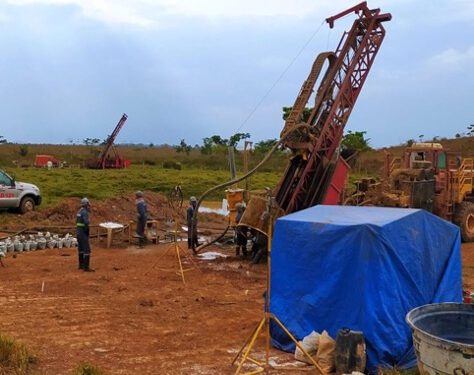Centaurus Metals (ASX: CTM) has reported strong progress with its ongoing metallurgical testwork and other key work streams being progressed as part of the ongoing Definitive Feasibility Study (DFS) on its 100%-owned Jaguar Nickel Sulphide Project in north-eastern Brazil.
The advancement of off-take discussions, in parallel with progress on the DFS, continue to confirm the clear advantages of producing nickel sulphate at Jaguar given the dynamic market conditions for EV-related commodities and the Class-1 nickel that can delivered with a very low-emission footprint.
Recent advancements in the Pressure Oxidation (POX) process flowsheet, which offer the potential to further optimise capital and operating costs, will require the preparation of additional concentrate feed for the pilot plant work.
As a result, the POX pilot plant test work is expected to commence in November 2022 to allow time for further drill core to be delivered to Australia from which additional concentrate feed can be prepared.
In line with this revised schedule, the delivery of the DFS will now occur in mid-2023 with a Final Investment Decision (FID) targeted for Q4 2023, after FEED work is sufficiently advanced to place long-lead orders and the second stage of the environmental approval process (Installation Licence) has been completed.
The environmental approval process is progressing without issue, albeit at a slightly slower pace than the company was anticipating. Several meetings, including an initial site visit, have been held with the Environmental Agency in Para State (SEMAS) to keep them informed on project development activities.
The company is still targeting first production in 2025, subject to confirmation of delivery timelines for long-lead items once the DFS is finalised.
Centaurus Metals Managing Director, Darren Gordon, said the additional time being taken to finalise the DFS would allow it to take advantage of enhancements to the POX process flowsheet and optimise capital and operating costs.
“We remain focused on delivering a project capable of supplying high-quality battery-grade nickel sulphate directly into the rapidly expanding EV market globally,” he said. “The economic rationale for value-adding in Brazil remains compelling, especially where the product can be delivered with an extremely low-emission footprint – which we know we can achieve at Jaguar.”
Flotation and Pilot Plant Testwork
A significant amount of flotation test work has been completed for the design of the flotation part of the overall process flowsheet design. Over 50 flotation tests have been completed, including bulk float tests, allowing the company to prepare over 400kg of concentrate ready for pilot plant testing of the planned pressure oxidation circuit.
In conjunction with the company’s hydrometallurgical consultants, the company has continued to fine tune the POX process flowsheet and the pilot plant testing conditions.
Development of the POX part of the process flowsheet has concentrated on maximising nickel extraction from the source nickel concentrate by testing a range of feed grind sizes, autoclave temperatures, oxygen pressure and reaction rates. This has shown that optimal nickel extraction is best achieved by controlling the rate at which the sulphides oxidise rather than maximising the rate of oxidation.
Optimising the process flowsheet with the introduction of a slurry recycle stage used to control temperature within the autoclave rather than cooling water has been shown to improve nickel extraction while also reducing the vessel volume necessary to achieve the residence time required.
Including the recycle design in the autoclave has resulted in a requirement to increase the slurry feed rate over what had been previously expected, increasing the amount of concentrate required for piloting work by ~250kg. To achieve this additional concentrate volume, further core is being sent to Australia from Brazil. The plan is to now run the pilot test from the beginning of November.
The pilot test will culminate with the delivery of nickel sulphate and other final products for product marketing as well as assisting in providing the design criteria for Ausenco to use in the development of the overall process flowsheet for the DFS.
Off-take Discussions
Off-take discussions are continuing with Vale in relation to the products to be produced from Jaguar. Vale has the right to product at arm’s length market-based pricing under the original acquisition agreement for the Jaguar Project. Centaurus retains discretion over what nickel products will be produced at Jaguar.
The introduction of the Inflation Reduction Act by the US Government has highlighted the strategic importance of energy metals like nickel and, in particular, those that can be sourced in geopolitically stable jurisdictions with a low-emission footprint.
Brazil fits these criteria well as it is South America’s largest pro-mining jurisdiction, the 8th largest global economy and currently more than 80% of the country’s grid power is delivered from renewable sources. It is anticipated that the Jaguar Project will be able to secure 100% renewably sourced power by the time it is in production.
At 80.6Mt @ 0.91% Ni for 730,700t of contained nickel, Jaguar is one of the largest nickel sulphide resources outside of the majors. With this very large metal endowment, the Jaguar Project is extremely well placed to capitalise on these changing market dynamics ahead of the scheduled Mineral Resource Estimate later this month, where the company is targeting over 500,000t of contained nickel in the Measured and Indicated categories.












